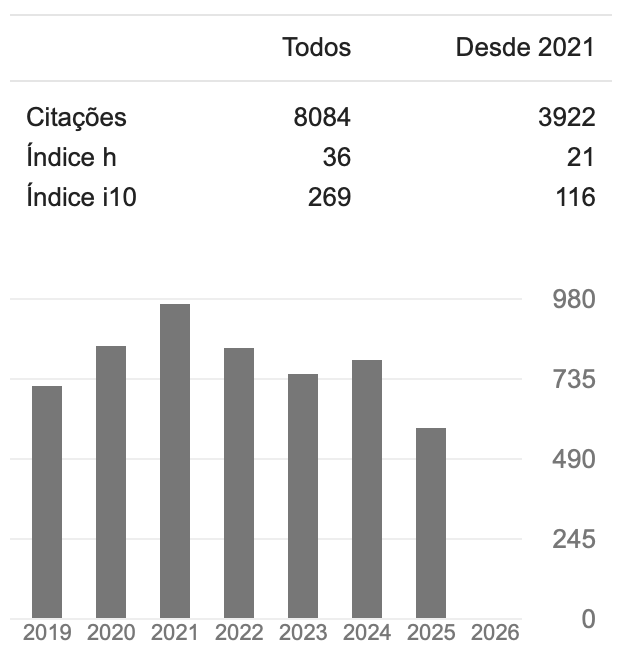Epidemiologic and Etiological Aspects of Crohn's Disease
Keywords:
Crohn's Disease, Gastrointestinal Tract, Epidemiology, Etiology.Abstract
Crohn's disease (granulomatous enteritis or colitis, regional enteritis, ileitis, or terminal ileitis) is an inflammatory bowel disease of high morbidity and relative mortality. It affects the gastrointestinal tract from the mouth to the anus, frequently reaching the terminal ileum, producing serious physiological and morphological changes that may put to risk the well-being of the subject and society. Although the disease’s epidemiology has been more or less established in the United States, reliable epidemic data in Brazil are still lacking due to difficulties in diagnosis and scanty information. The most probable causes of the disease may include infectious agents; psychosomatic, genetic, immunological and also environmental factors, mainly those related with diet. The latter is considered by many people as a "disease of the modern world". The difficulty in establishing the causal agent jeopardizes the treatment of the disease, and may lead to clinical and/or surgical symptomatic treatments. Due to the pathology’s increase during the last decades, current essay informs professionals, researchers and the population on the epidemiology and etiology of Crohn's disease.Downloads
Download data is not yet available.
Downloads
Published
2011-02-03
How to Cite
Schoffen, J. P. F., & Prado, I. M. M. (2011). Epidemiologic and Etiological Aspects of Crohn’s Disease. Saúde E Pesquisa, 4(1). Retrieved from https://periodicos.unicesumar.edu.br/index.php/saudpesq/article/view/1720
Issue
Section
Artigos de Revisão
License
A submissão de originais para a revista Saúde e Pesquisa implica na transferência da Carta Concessão de Direitos Autorais, pelos autores, dos direitos de publicação digital para a revista após serem informados do aceite de publicação.A Secretaria Editorial irá fornecer da um modelo de Carta de Concessão de Direitos Autorais, indicando o cumprimento integral de princípios éticos e legislação específica. Os direitos autorais dos artigos publicados nesta revista são de direito do autor, com direitos da revista sobre a primeira publicação. Os autores somente poderão utilizar os mesmos resultados em outras publicações, indicando claramente a revista Saúde e Pesquisa como o meio da publicação original. Em virtude de tratar-se de um periódico de acesso aberto, é permitido o uso gratuito dos artigos, principalmente em aplicações educacionais e científicas, desde que citada a fonte. A Saúde e Pesquisa adota a licença Creative Commons Attribution 4.0 International.
A revista se reserva o direito de efetuar, nos originais, alterações de ordem normativa, ortográfica e gramatical, com vistas a manter o padrão culto da língua e a credibilidade do veículo. Respeitará, no entanto, o estilo de escrever dos autores. Alterações, correções ou sugestões de ordem conceitual serão encaminhadas aos autores, quando necessário. Nesses casos, os artigos, depois de adequados, deverão ser submetidos a nova apreciação. As opiniões emitidas pelos autores dos artigos são de sua exclusiva responsabilidade.













